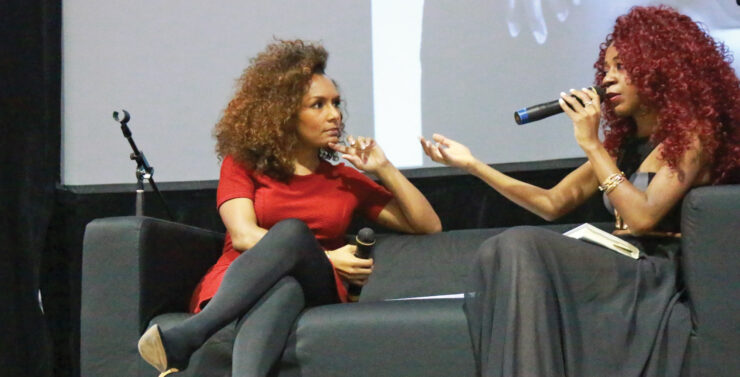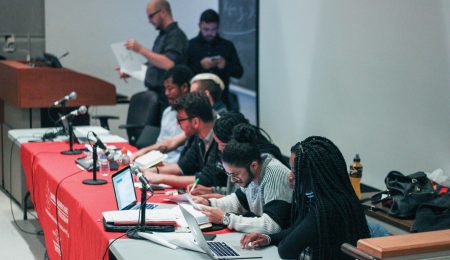Author and transgender activist visits the U of O to discuss issues in black community
Year after year we hear a similar statement echoed during the month of February—black history should be a year-long celebration, not just something we focus on for one month. Although some people question this sentiment, the Student Federation of the University of Ottawa (SFUO) expertly demonstrated the variety of black excellence that should be celebrated more regularly at their annual Black History Month Gala on Feb. 26.
The black-tie gala was held at Tabaret Hall on campus, and featured a variety of talented black performers and speakers, including American author and transgender activist, Janet Mock. Staying true to its purpose, the candlelit tables were adorned with names of important black figures in history instead of numbers.
Shortly after doors opened and guests took their seats, the gala was opened by a traditional Haitian dance group and a speech by SFUO vice-president equity Nicole Maylor. Maylor, whose speech outlined the challenges of growing up as a person of colour, set the stage for Mock’s keynote Q and A session conducted by Roselyne Dougé-Charles, the SFUO’s new racialized projects coordinator and a member of BlakCollectiv and the Black Student Leaders Association. Following her keynote, Mock stuck around to do a book signing and talk with attendees of the conference.
While the event was a celebration of black achievement and black unity, the theme of the night, it was also an honest discussion of the issues and challenges that people of the black community face regularly.
Mock was refreshingly open and honest about her experience as a transgender black woman, and shared insights from her book Redefining Realness. She began by explaining the genre of her book and the way it helped her become more in tune with herself.
“A memoir… is a self reflective genre and a lot of myself I learned through my interactions,” Mock said.
Mock went on to discuss difficult issues that affect her as a black woman, as well as the black community as a whole. She touched on her childhood and the difficult conversations she had with her parents about her gender transition, as well as the stereotypes associated with black masculinity, and how her father was “tasked as my father to be charged with raising a strong black boy.”
She also discussed the Eurocentric beauty standards of Western society, and how it affects the black community. Mock discussed how people with more typical European features, such as lighter skin and hair, were viewed as more beautiful and treated better by others.
As a woman who comes from a mixed background, with her father being African-American and her mother a native Hawaiian, Mock discussed how this preference of Eurocentric features and valuing of lighter skin affected her while growing up in Hawaii.
“(Although) there were a lot of people of colour, there was a hierarchy. My blackness was seen still as ‘other’, my brown skin was targeted because it was seen as ‘black’, which was seen as less than,” said Mock.
Mock, who works in the media as both a journalist and the host of So POPular!, a weekly digital series on MSNBC about culture, also discussed the lack of representation of minorities in her own field and the dichotomy of being either a well-respected famous black person or being policed for the colour of your skin as an average citizen.
Mock was able to tackle a myriad of difficult topics with unwavering confidence and grace, effectively addressing issues in the black community, and demonstrating the importance of black unity.




